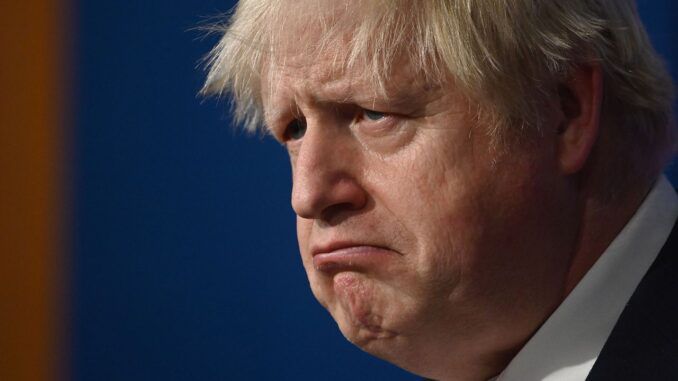
The British government’s life sciences adviser has claimed that mass covid deaths and packed intensive care units are likely ‘now history’ in the country.
Professor Sir John Bell regius professor of medicine at Oxford University said that the mass fatalities and full intensive care units that marked the pandemic’s first year are not likely to be repeated in the UK as a result of covid.
He said the covid variant Omicron is NOT the same disease we we seeing a year ago.
According to a report by The Independent the professor told them that vaccines based on early iterations of the virus appear to have remained highly effective at protecting against severe disease and deaths from subsequent waves driven by new variants.
“The horrific scenes that we saw a year ago – intensive care units being full, lots of people dying prematurely – that is now history in my view and I think we should reassured that that’s likely to continue,” he told BBC Radio 4’s Today programme on Tuesday morning.
While ministers have come under fire from some epidemiologists after choosing not to impose further health restrictions in England ahead of the New Year, as the Omicron variant continues to drive record surges in infections, Sir John backed the government’s decision.
“The health minister [Sajid Javid] has taken advice and looked at the data. I think his judgment where we should go in the next few days is probably fine,” said Sir John, who acts as a life sciences adviser to the government and is a member of the vaccines taskforce.
“There are a lot of people who are aware that we are in the face of this large wave of disease. The behaviour of people in the UK, in England in particular, has been pretty responsible in terms of trying not to go out and spending a lot of time exposing yourself to the virus.
“You look at the people on the streets, the roads are quiet, all that stuff. I think that’s likely to continue for the next week as we see how this thing evolves.”
His comments contrasted with those of Imperial College London immunologist Danny Altmann, who suggested that the government’s decision could represent the “greatest divergence between expert clinical/scientific advice and legislation” since the pandemic began.
And Professor Andrew Hayward, an epidemiologist on the government’s Scientific Advisory Group for Emergencies (Sage), told the BBC that ministers seemed to be acting “on the optimistic end of the spectrum”.
But Sir John said that, while recent NHS hospitalisation data spanning weekends and national holidays tend to be “less robust”, there were “some hard pieces of data” available to ministers deciding upon new restrictions for England, such as the number of vaccinated people in intensive care units.
“That number remains very, very low,” he said.
Asked about the “dramatic” 45 per cent rise in the the number of Covid-19 patients in London hospitals in the week to 27 December, Sir John said: “I think you’ve got to be careful about that … First of all in absolute numbers, it’s not massive, it’s an increase of about 200 people a day, and it still remains less than 400 which is a marker that we had been watching.”
He said that the disease “does appear to be less severe”, arguing that most patients “don’t need high-flow oxygen” and “the average length of stay is apparently three days”, adding: “This is not the same disease as we were seeing a year ago.”
This assertion was echoed by NHS Providers chief executive Chris Hopson, who said on Monday that many health trust chiefs are discussing the possible impact of “incidental” coronavirus hospital admissions – asymptomatic people who test positive for the virus after being admitted to hospital for another reason.
Related posts:
Views: 0
 RSS Feed
RSS Feed

















 December 31st, 2021
December 31st, 2021  Awake Goy
Awake Goy 
 Posted in
Posted in  Tags:
Tags: 
















